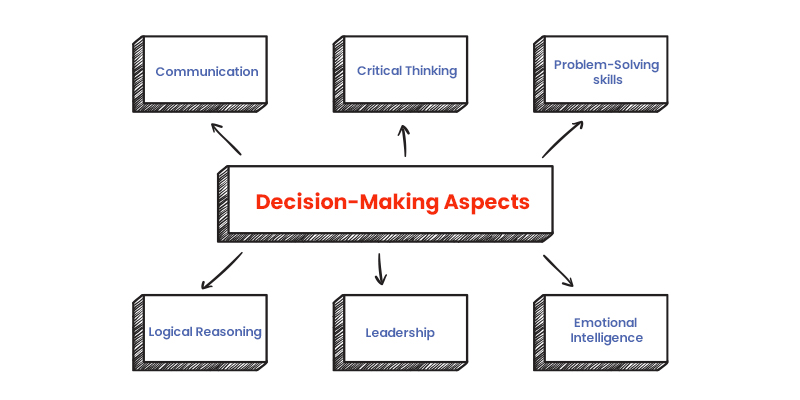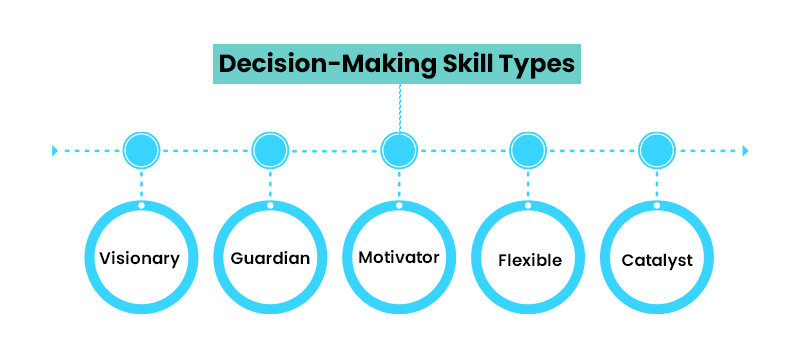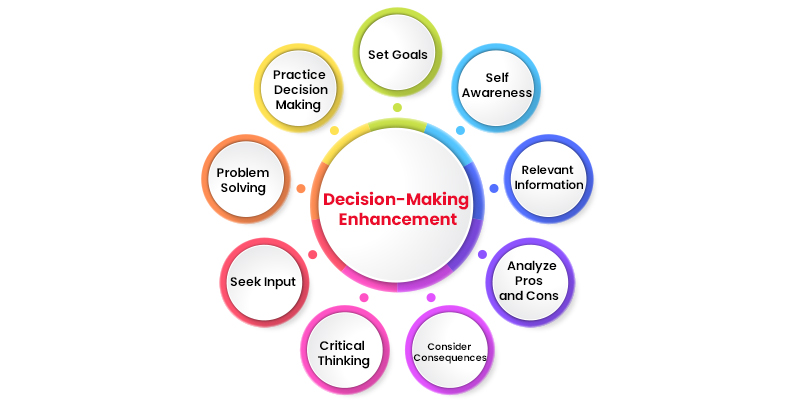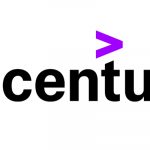In today’s ever-evolving Professional World, making informed decisions is a major aspect of achieving a fulfilling and successful career. Every single job-related decision you make will influence your journey and ultimately shape your career path. This blog will guide the recent graduates who are looking for freshers-jobs with the concept of decision making, its importance, and tips for how to master Decision-making skills to develop your career success.

Decision-Making
Decision-making is a process in which a person should make choices or decisions, gather information, and access resolutions to resolve a conflict or other process. It is a basic aspect of an individual which influences their personal, professional and social well-being. No matter whether it is simple or complex, decision-making skills play an important role in shaping individual lives and organization.
It’s very important to note that decision-making is affected by diverse factors, including personal biases, emotions, cognitive limitations, and external pressures. Being aware of these influences can lead to more rational and objective decision-making. Developing the ability to analyze options, consider consequences, and align choices with long-term goals is essential for making the most out of your job opportunities and navigating challenges along the way. Effective decision making skills are vital in career development as they impact the path of one’s professional journey. Decision-making skills involve,
- Identifying a Need or Problem
- Gathering Information
- Making Choices or decisions
- Monitoring and Adjusting
- Learning and Feedback
Freshworks offers a wide range of job opportunities for freshers. Interested candidates can visit Freshworks Jobs For Freshers to look for various job positions relevant to their skills and abilities.
Key Aspects of Decision-Making
Decision-making skills will guide us through life’s intricate journey. These essential skills empower us to evaluate options, analyze consequences, and choose the best course of action. Developing all these key decision-making skills equips you with the tools needed to overcome challenges and seize opportunities, which ultimately lead you toward success.
- Communication: Communication is typically referred to as the transmission of information. Effective communication skills are vital for conveying decisions. Clear communication helps prevent misunderstandings and ensures that decisions are implemented smoothly.
- Critical Thinking: Critical thinking is generally referred to as analyzing available facts, evidence, observations, and arguments to form a judgment by the application of rational, and unbiased analysis and evaluation.
- Problem-Solving skills: Problem-Solving is a process of overcoming challenges or obstacles. In the process of Problem-Solving, decision-making skills include choosing the possible solution for a problem. Problem-Solving is a key skill in decision making.
- Logical Reasoning: Logical reasoning is a mental activity that rigorously arrives at a conclusion. It happens in the form of inferences or arguments, starting from a set of reasonings to a conclusion.
- Leadership: In both research areas and as a practical skill, leadership is referred to as the ability of an individual or group to guide other individuals, teams, or entire organizations. It involves setting a clear vision, providing direction, and creating an environment of collaboration and development.
- Emotional Intelligence: Emotional intelligence is a capability of using, understanding, managing, and handling emotions. Emotional intelligence involves understanding an individual’s feelings and conveying your opinion to motivate them to take necessary action.
Significance of Decision-Making
Decision-making plays a fundamental role in both our personal and professional lives. Every day, we face situations that require us to make choices. The significance of decision-making lies in its ability to shape our outcomes, influence our progress, and contribute to our overall growth and success. Listed below are the importance of decision making skills in the workplace.
- Problem-Solving: Every workplace faces challenges and problems, ranging from day-to-day conflicts to complex strategic issues. Effective decision-making skills always include Problem-Solving skills that help employees identify issues, analyze their root causes, and develop the right solution.
- Efficiency and Productivity: Good decision-making helps to solve problems efficiently and on time. Well-informed decisions prevent issues from getting severe and keep workflows on track, ultimately boosting overall productivity.
- Resource Allocation: Organizations have limited resources, including time, budget, and human resources. Decision-making skills help you to allocate these resources efficiently to ensure that projects and tasks are completed effectively within the deadline.
- Innovation: Making innovative decisions involves exploring new ideas, taking calculated risks, and pursuing growth opportunities. Employees who possess strong decision-making skills are more likely to propose and implement innovative initiatives.
- Collaboration and Teamwork: In collaborative environments, decisions often involve multiple team members. Effective decision-making facilitates open communication, mutual respect, and shared ownership, leading to better teamwork and collaboration.
- Leadership Development: Decision-making skills are an essential aspect of effective leadership. Leaders need to make tough decisions, set a clear direction, and inspire their team to achieve common goals.
- Conflict Resolution: Conflicts are common in the current working environment. The ability to make fair decisions in conflict situations helps restore collaboration and maintain a positive work environment. Ethical decision-making ensures that personal biases and conflicts of interest do not compromise the integrity of the organization or individuals. This is essential for maintaining trust and credibility.
- Customer Satisfaction: In customer-centric industries, decisions can directly impact customer satisfaction. Employees with strong decision making skills can respond to customer needs and resolve issues promptly and effectively.
- Adaptability: Businesses operate in dynamic environments. Employees who can make decisions under uncertainty and adapt to changing circumstances contribute to organizational resilience and success.
- Risk Management: Every decision involves a certain degree of risk. Skilled decision-makers can assess risks, weigh potential rewards, and make choices that balance the need for creativity skills and innovation with risk management.
- Career Advancement: Strong decision-making skills are often associated with leadership potential and professional growth. Employees who consistently make well-considered choices are more likely to be entrusted with greater responsibilities and opportunities.
- Employee Empowerment: Organizations that encourage employees to make decisions and provide them with the skills to do so can promote a sense of ownership and empowerment among their workforce.
By understanding its importance and continuously improving your decision-making skills, it will lead you to a more fulfilling and successful career journey.
If you are looking for job vacancies in Delhi, you can look for job vacancies available in that city. Visit fresher job openings in Delhi to find job roles that can align with your skills and abilities.
Types of Decision-Making Skills
Listed below are the types of decision making skills.
- Visionary Decision-Making: Visionary decision-making involves making choices aligned with a clear and inspiring long-term vision. Visionary leaders analyze future trends, set ambitious goals, and make decisions that improve their team or organization toward that desired future state. They prioritize innovation, take calculated risks, and are willing to invest resources in projects that might give slow results but contribute to the long-term growth and success of the organization.
- Guardian Decision-Making: Guardian decision-making emphasizes risk reduction, stability, and protecting the status of the organization. Guardians are cautious decision-makers who prioritize the preservation of resources, avoiding unnecessary risks, and ensuring the well-being of their team or organization. While they might be less inclined to embrace radical changes, their decisions maintain stability and prevent impulsive actions that could result in negative consequences.
- Motivator Decision-Making: Motivator decision-making focuses on inspiring and empowering team members. Leaders who adopt this approach consider the professional and personal development of their team as they make decisions. Motivators strive to create an environment where individuals feel valued, engaged, and motivated to perform well. Their decisions often involve recognizing and rewarding achievements, facilitating a positive and healthy work culture, and providing opportunities for skill development.
- Flexible Decision-Making: Flexible decision making involves adapting to changing circumstances and being open to new ideas. Flexible decision-makers understand that situations evolve, and a single plan might not be effective. They are willing to adjust their decisions based on new information, market trends, or unexpected challenges. This approach encourages agility and ensures that decisions remain relevant in dynamic environments.
- Catalyst Decision-Making: Catalyst decision-making centers on initiating organizational change and transformation. Catalysts decision-makers make decisions that drive innovation, disrupt traditional practices, and push for growth. They are willing to challenge the circumstances, experiment with new approaches, and initiate projects that can bring about significant positive change, even if they involve taking substantial risks.
Enhancing Decision-Making Skills
The following points are tips for improving an individual’s decision making skills.
- Increase Self-Awareness: Understand your values, biases, and decision-making tendencies. Reflect on your past decisions and their outcomes to identify patterns and areas for improvement.
- Gather Relevant Information: Make informed decisions by collecting as much relevant information as possible. Research, analyze data, seek expert opinions, and consider different perspectives before concluding.
- Analyze Pros and Cons: List each option’s potential advantages and disadvantages. This structured approach helps you evaluate the potential outcomes and make more objective decisions.
- Consider Consequences: Think about the short-term and long-term consequences of your decisions. Evaluate how each choice might impact your goals, stakeholders, and the overall situation.
- Practice Critical Thinking: Improve your critical thinking skills by questioning assumptions, identifying biases, and assessing the validity of arguments. This will help you make more reasoned and logical decisions.
- Seek Input from Others: Don’t hesitate to seek advice and input from colleagues, mentors, or experts. Different perspectives can offer insights you might not have considered. After making decisions, seek feedback from your mentors or colleagues. This can help you understand the impact of your choices and identify areas for improvement.
- Develop Problem-Solving Skills: Enhance your ability to identify and address various issues effectively. Practice breaking down big and complex issues into smaller components and exploring various solutions.
- Practice Decision-Making: Like any skill, decision-making improves with practice. Start with smaller decisions and gradually work your way up to more complex choices.
- Set Clear Goals: Having well-defined goals makes decision-making easier. Make sure that your choices are relevant to your objectives to ensure consistency and focus.
In conclusion, In the journey of career development, decision-making skills stand as pillars of strength, guiding us to make the right choices and opportunities. So, in this blog, we discussed what is decision making, their importance, types, aspects, and tips for improving Decision-making skills for Career advancement.






